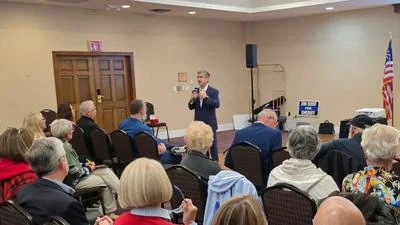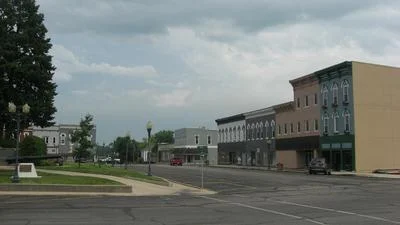Rep. Brad Halbrook
Rep. Brad Halbrook
State Rep. Brad Halbrook (R-Shelbyville) thinks three counties overwhelmingly voting to separate from Chicago during primary voting earlier this month is just a sign of things to come.
“We’ll see more counties doing the same thing in November,” he told the Macon Reporter. “This confirms what we’ve been talking about over the last few years about people outside of Chicago being tired of all the policies that come from legislators there that do nothing for people downstate. We want to restore equal representation for all of Illinois.”
Sending that message loud and clear was Effingham County, where almost 74% of voters cast ballots in favor of a referendum calling for separation.
The roots for the latest idea go all the way back to early 2019 when Halbrook proposed the notion just after beginning his second term.
“Going forward, my role is to just explain House Resolution 101 to as many voters as I can and to be a conduit for information and resources about the proposal so that people can make informed decisions about what’s best for them and their community,” Halbrook said.
With the idea recently marking its one-year anniversary, Halbrook told Macon Reporter he is as committed to it as ever and can feel the groundswell of support for it building.
“My thoughts are, marking the one-year anniversary, this movement continues to gain momentum and nationwide attention,” he said. “It’s a movement that’s still very much alive and people are still really engaged.”
With Chicago being the third-most populated city in the U.S., The Pantagraph reports that five of the six executive state offices are now occupied by city residents, including House Speaker Mike Madigan (D-Chicago), the state’s longest-serving and arguably most-powerful lawmaker.
“We’re a constitutional republic that’s been forced into a democracy that’s concentrated power into a small geographical area and that’s given us all this bad policy and financial situation that’s driving us in the abyss,” Halbrook said. “In the end, Chicago lawmakers approve bills that downstate residents don’t resonate with.”




 Alerts Sign-up
Alerts Sign-up